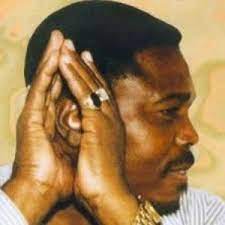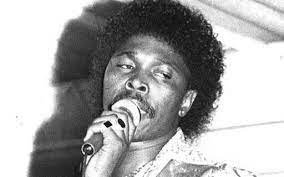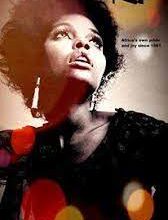Coming In From The Cold-Lovemore Majaivana Comes Out of Retirement

Lovemore Majaivana

By Kamangeni Phiri
It’s finally happening.
Lovemore ‘Majaivana’ Tshuma, one of Zimbabwe’s finest musicians ever, is coming out of retirement to perform one last dance for his fans.
Well, not exactly. At the advanced age of 70, dancing might prove to be a challenge for the master of ingquzu.
The US-based Majaivana will be going into the studio one more time to record music with long time friend and poet, Albert Nyathi.
“We have been in talks all along and people made appeals for him to come back or make music again, eventually he has agreed and we will do a song, two or three together again and we will see in terms of demand and resources to record and package the music.
“We also want to produce music in an environment which won’t see us losing money from piracy, music is a business and we won’t go into the studio for people to share our product for free,” Nyathi recently told local weekly, The Standard.
A prime Majee performed his last ingquzu dance in 2000 bidding farewell to a profession that brought him fame, segregation, misery and joy in equal measure.
Since then, fans have tried every trick in the book to make their music star come out of retirement without success. They even signed a petition, hoping to convince Majaivana to reconsider hosting at least a farewell show for his fans in Bulawayo but that again did not work. Over 2 500 fans signed that petition.
It took respected poet and artiste Albert Nyathi to convince the man he considers as a nephew to come out of the cold. He was happy he finally managed to convince Majaivana after years of trying.
Majaivana and Nyathi once worked together on Isono Sami where the poet was featured on the title track (the Imbongi version).
“This is also a test of character for everyone who was calling for Majaivana to make music again. It’s a test for them to buy the music because that’s the only way they can show support,” Nyathi told The Standard.
Lovemore ‘Majaivana’ Tshuma, has an extensive and rich catalogue that transcends generations.
The veteran musician was pushed out of the game partly by fans who were reluctant to pay and watch him perform. When the Ndebele cultural ambassador turned up at the Large City Hall on 20 November, 2000 for what was projected to be a memorable show, the iconic singer received next to no attention.
The turnout was poor.
Majaivana, who was based in Harare at the time, had teamed up with musicians who traced their roots to Bulawayo.
The show dubbed Bulawayo Music Night featured Black Umfolosi, Sunduza, SIyaya, Paul Lunga and Jazz Impacto, Imbizo, Albert Nyathi and the main attraction, Majaivana.
Ironically, only a few months earlier, the late Oliver Mtukudzi had performed at the same venue and filled it to capacity, with Majaivana part of the headline acts.
Frustrated, the singer withdrew from the music scene in the same year and relocated to the United States where he is said to be a successful businessman and a pastor.
Yet, for a moment in the 80s, it appeared the yesteryear musician and exquisite dancer was destined to be the next big thing in folklore music. Majee, who has been in self-imposed exile for 20 years, helped make popular the Ndebele traditional dance, ingquzu, globally.
His fans jammed all social media platforms calling for their idol to come out of retirement and perform one last show for them.
There has not been this much hullabaloo about a retirement since the late boxing legend, Kilimanjaro, real name Proud Chinembiri, hung his gloves in 1990.
The only difference is Majee quit music in 2001 when he was still on top of his game.
It was probably his last album, Isono Sami, a big hit then, which fueled the nostalgic feeling among his fans and made them demand that the singer come out of retirement.
Lovemore Majaivana was born Lovemore Tshuma on 14 December 1952 in Mambo Township in Gweru. He earned his stage name “Majaivana” because of his nimble footedness. A self-confessed school drop-out in pre-independent Zimbabwe, Majaivana chose music as a career. Music helped him take care of his siblings following the death of his father in a car accident in 1974.
Majee is the eldest child in a family of seven.
His family moved from Gweru to Bulawayo when the singer was aged four in the 1950s. His father, Reverend Tshuma, was Malawian born and a priest of a local church in Bulawayo while the mother, MaNyathi, used to sing in the church choir. Majee credits his mother for most of his songs.
“The songs didn’t come from me. They were always there before I was born. They were songs that were sung at ceremonial gatherings, so I only broadened them,” he said.
Lovemore discovered his singing talent at an early age when he was part of the church choir. But it was a struggle for him to convince his Christian parents to approve of his singing secular music. He therefore resorted to sneaking out at night for meetings and practice with the band in his formative years.
The first time that his parents recognised Lovemore’s talent was when he won the best vocalist slot at the Trade Fair in 1977. They immediately approved of his singing in the ‘world.’
As a kid he teamed up with his friend, Mtshapi, a neighbor and the two built their own first set of drums using plastics and empty cardboard barrels cut in half. With the makeshift drums, the boys performed at local Beer Gardens, Manwele and New Bhawa (New Beerhall) in Bulawayo. Adoring patrons paid a meager token fee in appreciation. A year later, at the age of 15, Lovemore was playing with a real set of drums.
He horned his drum playing skills when he joined a local band, the Hi-Chords. The band played at weddings (Macdonald Hall) the local Boys Clubs. Soon they were playing at bigger venues like the famous Valley Hotel, the Great Northern, Marisha Cocktail Bar and the likes.
After sometime, Majee left and relocated to Harare where he reinvented himself as a lead singer when he dropped playing drums. He started singing in nightclubs performing cover versions of Tom Jones and Elvis Presley songs.
Lovemore went back to Bulawayo where he joined The Echoes, another local band.
He then packed his bags again after four years and went back to the capital where he joined the Jobs Combination, a resident band at Jobs Night Club owned by late businessman, Job Kadengu.
It was with the Jobs Combination that Majaivana’s signature mbanqanga beat was born.
The Jobs Combination also featured another legend, the late blind singer, guitarist and saxophonist, Fanyana Dube.
Majee cites Ngivulele, a track from his 1979 album Istimela as the song that launched him to stardom. In the song, Majee asks for his mother’s blessings for a better job, house, car and a white wife.
““That song sold well, I went out and bought a house through the sales that I made. It will remain the song that touches my heart.”
Majee left the group in 1984. He briefly worked as a milk salesman before retracing his steps back to Bulawayo in 1985 where he joined the Zulu Band, a group based in Victoria Falls that also featured two of his brothers.
His musical career was marked by struggles – the struggle to win the approval and endorsement of his own people, to have his music gain national appeal and even getting the financial rewards it deserved.
“My life has always been a sad one, I’ve been dealt blows below the belt,” Majaivana said. “First of all, it was the language that I sang in, it didn’t really bring me the fortune that one expects if you look at these other people that sing in the widely known languages. They get a better share of the profits.
“It’s partly why I left music. Whenever I went to get my cheque and I saw the other cheques of people that sang in a different language, they had better cheques than mine. Okay, you might say my music was not better than theirs, but fact is when we travelled to a lot of places like England, Sweden, Denmark and Canada we had full houses, but back home … it was on tribal lines.”
One can only hope Majee will meet with better luck this time around, if he does make the much anticipated comeback.


